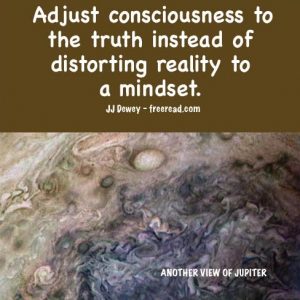
QUIZZIN’ TIME
In the past I wrote a number of fun quizzes. Thought it would be an interesting change of pace to post a few.
HOW LONG WILL YOU LIVE?
There is no absolute way to tell how long you will live, but there are things you can do to insure that you will live to your maximum age in good health. This quiz centers around areas that are within your control. If you score too many points take note of the things you can do to reduce your risk.
- How much do you smoke? (a) None (b) Light (c) Medium (d) Heavy.
- How much do you drink alcoholic beverages? (a) None (b) Light (c) Medium (d) Heavy.
- How much time a week do spend exercising or playing sports? (a) Virtually none (b) 0-1.5 hours (c) 1.5-3 hours (d) Over 3 hours.
- Pick the one that best describes your job: (a) I am sitting most of the day (b) I sit about half the day and active the other half (c) I am active most of the day.
- Pick the one that best describes your attitude toward your job: (a) I hate my job and wish I was doing something else. (b) I don’t hate my job, but I don’t love it either. It’s just a necessary evil. (c) I enjoy my work, even though it is not my first choice (d) I love my work. It would be difficult to find a vocation I would enjoy more.
- Describe the choice that best reflects your closest relationship: (a) There is much fighting and tension with little lightness and laughter. (b) There is fighting and tension, but there are also good times with lightness and laughter. (c) There is little fighting and tension with quite a bit of lightness and laughter and good communication. (d) There is little fighting and tension, but we are a fairly serious and quiet.
- When someone hurts your feelings what do you do? (a) I keep them to myself for I do not want to cause further upset by disturbing anyone. (b) If it is a small hurt I will keep it to myself, but if it is a large hurt I will let the person know how I feel. (c) If anyone hurts my feelings at all I will try to let him know how I feel.
- Describe the foods you eat more than twice a week: (a) Fresh fruits (b) Well done beef (c) Rare to medium done beef (d) Fresh green vegetables (e) Water with no chlorine added (f) Whole grain bread. (g) Fried foods. (h) Food or sweets containing white sugar or fructose.
- Are you in love? (a) Yes (b) No
- Do you want to live a long life? (This assumes you will grow old but live a reasonably healthy life). (a) Yes (b) No
- Would you be willing to make changes in your lifestyle to live longer? (a) Yes (b) No.
- Do you think people over sixty can enjoy life as much as a young person? (a) Yes (b) No
- Describe the quality of your life: (a) Excellent; it’s great to be alive (b) Good; I can’t complain (c) Fair; life goes on but I don’t have much to look forward to. (d) My life sucks.
SCORE: Question One: (a) 0, (b) 1, (c) 2, (d) 3; Two: (a) 0, (b) 0, (c) 1, (d) 4; Three: (a) 3, (b) 2, (c) 1, (d) 0; Four: (a) 2, (b) 1, (c) 0; Five: (a) 3, (b) 2, (c) 1, (d) 0; Six: (a) 2, (b) 1, (c) 0, (d) 1; Seven: (a) 2, (b) 1, (c) 0; Eight: (a) -1, (b) 2, (c) 1, (d) -1, (e) -1, (f) -1, (g) 1 [Note: subtract the negatives of this answer from the final score] Nine: (a) 0, (b) 1; Ten: (a) 0, (b) 2; Eleven: (a) 0, (b) 2; Twelve: (a) 0, (b) 1; Thirteen: (a) 0, (b) 1, (c) 3, (d) 4.
INTERPRETATION:
-4 to +4 Points: You are a health conscious person with a positive mental attitude. You always expect the best and you usually get it. Barring things beyond your control such as heredity, you have the best chance for a long healthy life.
5-12 Points: You also have a good chance for a long healthy life. Study the questions that ran up your score and you can increase your chances. 13-22 Points: You need to be more conscientious toward your emotional, mental and physical health, which are all interrelated. You don’t want to live an average life do you?
23 + Points: You scored the worst. You need to brighten your outlook and take better care of yourself and your needs. The items in this quiz are all under your control. Start working on them now to lengthen your stay here on planet earth.
WOULD YOU BE A FAITHFUL MATE?
- How physically attractive are you? (Perhaps you should get a second opinion here.) (a) Fair (b) Average (c) Good (d) Great!
- Do you drink more alcohol or take more drugs than your loved ones feel you should?
- If you smoke, have you tried to quit smoking but been unable to?
- Do you feel adultery offends God?
- Do others describe you as impulsive?
- Describe your temper: (a) Mild (b) Average (c) Strong (d) So strong you have difficulty in controlling it.
- Would you lie to prevent hurting another person? 8. How much should your mate be allowed to know about your activities? (a) Only what I am willing to tell him or her (b) Almost everything, but there are some things one should be able to keep private (c) I am happy to honestly tell my mate whatever he or she wants to know.
- Do you believe and practice the idea that a couple should feel committed to each other before having sexual intercourse?
- How important is it to you that both you and your partner are sexually faithful in a committed relationship? (a) It would be nice, but not all important (b) It is reasonably important (c) It is extremely important.
SCORING: Question One: a 0, b 1, c 2, d 3; Two: Yes 1, No 2; Three: Haven’t tried to quit 2, Yes 1, Don’t smoke 0; Four: Yes 0, No 1; Five: Yes 1, No 0; Six: a 0, b 0, c 1, d 2; Seven: Yes 1, No 0; Eight: a 2, b 1, c 0; Nine: Yes 0, No 2; Ten: a 2, b 1, c 0. INTERPRETATION:
0-6 Points: You believe in commitment, honesty and integrity in a relationship and can be trusted as much as humanly possible. Your mate should be able to rest securely while you are away. Nevertheless, remember that we are all human; don’t play with fire just because you are in this category.
7-11 Points: You like to have the opportunity to do a little flirting and get attention from the opposite sex. You have no intention of being an unfaithful mate when you are in a committed relationship, but enjoy playing with a little fire. You must be careful to always remember the importance of your relationship or you may find yourself tempted at times. Your mate can help by being an interesting partner.
12-18 Points: You do not have a strong desire to be committed to any one person for a whole lifetime. You must be careful to avoid making the other person think that you are more committed than you are; this could save a lot of hurt. Nevertheless, you may find that right one who steals your heart and causes you to become completely devoted. If it happened to Hugh Heffner, it can happen to any of us.
ARE YOU A LEADER OR FOLLOWER?
- Choose one answer that best describes you: (a) I am the firstborn in my family. (b) I am not the firstborn but there are 3 or less years separating me from my older brother or sister. (c) I am not the firstborn but there are four or five years separating me from my older brother or sister. (d) I am not the firstborn and there are six or more years separating me from my older brother or sister.
- What is your attitude toward arguments? (a) I try to avoid them (b) I will argue if the cause is important, but would never start one. (c) I will never run away from an argument and may start one from time to time.
- What is your attitude toward winning an argument? (a) It is totally useless to even try. (b) I will try to win only if the other person has offended my principles (c) I will try to win whenever I see the other person is in ignorance (d) I must always try to win and never give up.
- How strong is your attraction toward the opposite sex? (a) Less than average (b) Average (c) Above average.
- When someone insults something you believe in, how do you react? (a) It’s not worth getting bothered about. (b) I feel insulted but feel that it doesn’t do much good to react to something negative. (c) I feel upset and do everything in my power to correct the insult.
- How do you learn the best? (a) With the guidance of a good teacher with a set curriculum. (b) On my own setting my own curriculum and pace using a teacher only to answer my questions.
- Describe your attitude or situation toward self-employment: (a) I am self-employed to the extent that I set my own hours and am my own boss. (b) I am not presently self-employed but have plans to be in the near future. (c) I prefer the security of working for someone else.
- Did you have a close relationship with your mother or did she have a strong influence on you? (a) Yes (b) No.
- Do you sometimes think your doctor’s advise is not as sound as your own? (a) Yes (b) No.
- How many casual friends do you have? (a) A small number (b) An average amount (c) A large number.
- Describe your posture (Try to get the opinion of another person): (a) poor to fair (b) Average (c) Good to excellent.
- How many days work have you lost due to personal illness (do not count accidents) over the past three years? (a) 0-3 (b) 4-10 (c) More than 10
SCORING: Question One: (a) 3, (b) 0, (c) 1, (d) 2; Two: (a) 0, (b) 1, (c) 2; Three: (a) 0, (b) 1, (c) 2, (d) 1; Four: (a) 0, (b) 1, (c) 2; Five: (a) 0, (b) 0, (c) 1; Six: (a) 0, (b) 1; Seven: (a) 2, (b) 1, (c) 0; Eight: (a) 1, (b) 0; Nine: (a) 1, (b) 0; Ten: (a) 0, (b) 1, (c) 2; Eleven: (a) 0, (b) 1, (c) 2; Twelve: (a) 2, (b) 1, (c) 0.
INTERPRETATION:
16-21 Points: You have many natural leadership qualities. You are willing to take over where others will give up. You are one who does not follow the crowd or does things for the sake of appearance. You like to be your own person. A person cannot be a true leader unless he is willing to leave outworn methods of doing things. This you are willing to do. You do not mind taking some heat or criticism to which a leader is always subjected, and you are willing to take an unpopular side of an issue. 10-15 Points: You don’t mind taking your share of chances and are qualified to lead in all the normal areas of life. As long as there are no major problems or turbulence, you could be well accepted in a leadership situation. Under too much pressure you may seek for easy solutions to avoid confrontation.
5-9 Points: You may like to be a leader, but you lack the initiative to take the necessary steps so that others can follow. You may find yourself torn between leading or following and have difficulty in deciding which path to take or how leadership is to be attained. If you truly want to be a leader, it can still be done but you must learn to believe in yourself. 0-4 You don’t mind following and do not apologize for it. You seek security in life and don’t desire to take any risks which will jeopardize you or your family financially or otherwise. You should be a good, stable provider.
HOW OPEN-MINDED ARE YOU?
Everyone thinks he has an open mind, but in reality we all have acquaintances who immediately shut down their minds to ideas that do not conform to their pre-conceived notions.
Take this test for an indication of how open-minded you are:
- The politician who you least like comes up with a plan for world peace. How would you react? (a) I would assume that the plan was as bad as the rest of his ideas. (b) I would listen to the proposal, but I know I wouldn’t like it. (c) I would listen to the proposal with the idea that it may contain something of value.
- An acquaintance wants you to listen to what you consider to be the worst music in existence so he can explain to you why it has value. (a) You would not consider such a thing (b) You would listen but are sure it has no redeeming value (c) You would listen with the idea that this person may perceive something of value that you do not.
- You are at a party and meet a person who says he is a member of The Flat Earth Society. He tells you that the stars above are an illusion, the earth is really flat and we only appear to be circling around the sun. He seriously tells you that he can logically prove all of this if you will listen to him a few moments. (a) The man is obviously a crackpot and you excuse yourself. (b) You listen for entertainment value only (c) You listen at least partly because you want to see if his thought has any logical foundation.
- You have a six year old daughter who, as far as you know, is completely normal. One day she comes to you out of the blue and says that some space people are in contact with her by mental telepathy and that they have an important message for the people of the earth. How would you react? (a) I would feel that she has a problem and take her for professional help (a minister or psychologist). (b) Ignore the problem and hope it goes away. (c) I would question her with a mind open to the possibility that the communication may be valid.
- A representative of a religious cult knocks on your door and wants you to read a pamphlet proving that their leader is God incarnate. What do you do? (a) Slam the door on him before he can explain why he is there. (b) Politely listen to him but refuse the pamphlet. (c) Take the pamphlet but not read it. (d) Take the pamphlet and read it.
- An old friend who has a reputation of being eccentric and whose advice caused you to lose money in the past approaches you with a sure-fire-get- rich-quick business venture. It requires $1000 investment which you happen to have at the time and he tells you that you should be able to get that back ten-fold in a month and possibly have financial security for the rest of your life. You would: (a) Be polite, but refuse to listen to his new scheme. (b) Listen to what the man has to say, then ignore him without trying to consider his ideas. (c) Listen to his idea with the possibility (however slim) of acting on it.
- Which of the following have you changed your opinion or belief on after the age of 18? (a) Your religion (b) Your political party (c) Birth control (d) Abortion (e) Capitalism or communism (f) The environment (g) Nuclear arms or world peace (h) Legalization of drugs (i) The foods you like. (j) The type of person you want for a mate.
SCORING: 1a 0, 1b 0, 1c 2; 2a 0, 2b 1, 2c 2; 3a 0, 3b 1, 3c 3; 4a 0, 4b 1, 4c 2; 5a 0, 5b 1, 5c 1, 5d 3; 6a 0, 6b 0, 6c 2. On question 7 score two points for each category in which change occurred.
INTERPRETATION:
0-12 Points: You may think you are open-minded, as all people do, but in reality you instinctively resist any idea that is not commonly accepted within your group or belief system. You tend to fear others who are different than yourself. Lighten up and be more flexible. 13-17 Points: You may change when you have to, and some may see you as open-minded, but you tend to listen to an opposing point of view out of courtesy rather than having any consideration for it.
18-24 Points: You have a good live and let live philosophy. You have a high tolerance for other points of view. You are open-minded on a subject you feel is important or credible but will not sustain enough interest to keep your mind open if the subject is not on your interest list. 25-34 Points: You are truly an open-minded person. You will always be open to all possibilities. This will lead you into many interesting experiences. To use this open-mindedness effectively, however, make sure you maintain a stable mind or others may think you are fickle-minded.
IS MARRIAGE FOR YOU?
Those who are not married are often unaware (or forget if previously married) as to how many adjustments must be made to have a successful relationship. A certain willingness to compromise must exist in each person if the marriage is to be successful. Score one point for each of the adjustments you would be willing to make with a marriage partner.
- Could you accept your mate’s children as if they were your own?
- Could you live with a mate who wants either more or fewer children than you?
- Could you accept a mate who has different ideas on birth control?
- Could you live with a mate who wants more or less sex than you?
- Would you be willing to eat your meat cooked either more or less than you are used to?
- Are you willing to eat some foods and preparations you presently would not eat?
- Could you live with a mate that snores?
- Could you live with a mate who wants you to go to bed with him or her at a different hour each night than you are used to?
- Can you handle a mother or father-in-law giving you advise that you do not want to hear?
- If your mate gains weight and loses some attractiveness, can you still give him or her all of your love?
- If you have an attractive mate can you handle him or her being attractive to the opposite sex and possibly having to work with them?
- Could you handle having your mate not showing a lot of interest in your work or goals?
- Are you willing to be more punctual than you presently are to keep your mate happy?
- Are you willing to vacation at your tenth choice rather than your first?
- If your mate is cleaner than you, are you willing to help make your home cleaner than you are used to; or if your mate is messier than you, are you willing to tolerate more mess than normal? (Counts as one answer)
- Could you handle having your mate talk about experiences with past lovers?
- Could you let your mate spend most of the extra money on his or her desires?
- Could you handle having a mate of a different religion?
- Would you allow your children to be raised in your mate’s religion?
- Would you be willing to miss some of your favorite TV shows and movies to watch those that your mate likes?
INTERPRETATION:
0-5 Points: You are set in your ways and need to find that imaginary “perfect person” to have a happy marriage. 6-10 Points You have the possibility of a happy marriage if you find a person who thinks like you do.
11-15 Points: You have excellent potential to have a happy marriage. You are willing to give and take.
16-20 Points: You are willing to make your mate happy but you may find yourself being walked over by your mate so much that you are miserable in a relationship. Remember that you are entitled to have some things go your way.
June 4, 2004
Copyright by J J Dewey
Easy Access to All the Writings
For Free Book go HERE and other books HERE
JJ’s Amazon page HERE










